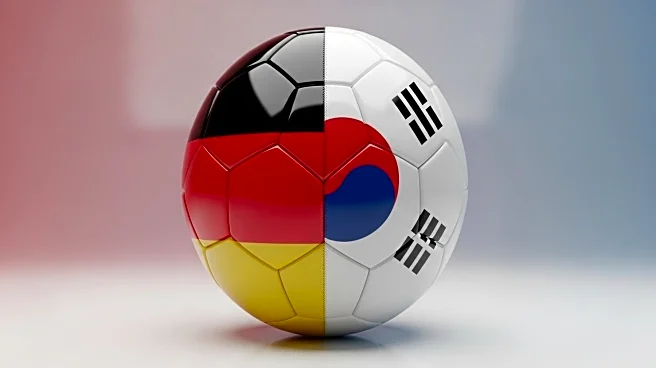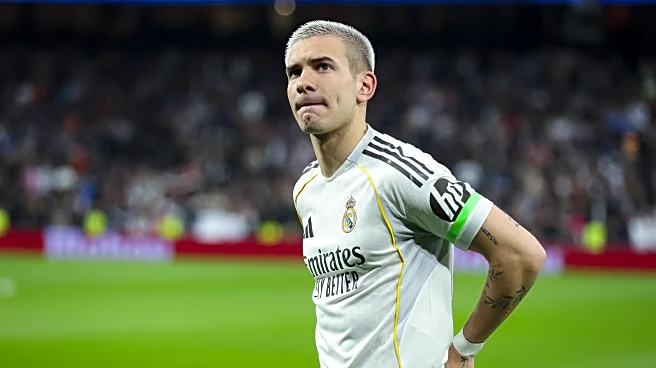What is the story about?
What's Happening?
Jens Castrop, a midfielder for Borussia Monchengladbach, has switched his international allegiance from Germany to South Korea. Castrop, born in Dusseldorf to a German father and South Korean mother, made his debut for South Korea in a friendly against the United States in September 2025. This move makes him South Korea's first-ever foreign-born player of mixed heritage. Castrop was eligible for the switch under FIFA rules, having not made any senior appearances for Germany. His decision was influenced by a better pathway to international play with South Korea, as competition for senior minutes in Germany is highly competitive.
Why It's Important?
Castrop's switch highlights the growing trend of dual nationals opting to represent countries where they see better opportunities for international play. This decision could impact the dynamics of international football, as countries like South Korea seek to enhance their player pool by recruiting talent globally. For South Korea, Castrop's inclusion could strengthen their squad ahead of the 2026 FIFA World Cup, potentially improving their performance on the international stage. The move also underscores the importance of FIFA's eligibility rules, which provide flexibility for players to choose their national teams.
What's Next?
Castrop's decision may inspire other dual-national players to consider similar moves, potentially altering the composition of national teams worldwide. South Korea will likely continue to scout international talent to bolster their squad for upcoming competitions. Castrop's performance in the World Cup could influence his career trajectory and open doors for further opportunities in international football. Additionally, his decision may prompt discussions on the implications of military service requirements for dual nationals in South Korea.
Beyond the Headlines
The switch raises questions about the cultural and personal identity of athletes with mixed heritage. Castrop's choice reflects a personal connection to his Korean roots, as emphasized by his mother's influence. This decision also highlights the sacrifices athletes may face, such as potential military service obligations, when choosing to represent a country. The broader implications of such moves could lead to changes in how countries approach the recruitment and development of international players.
















